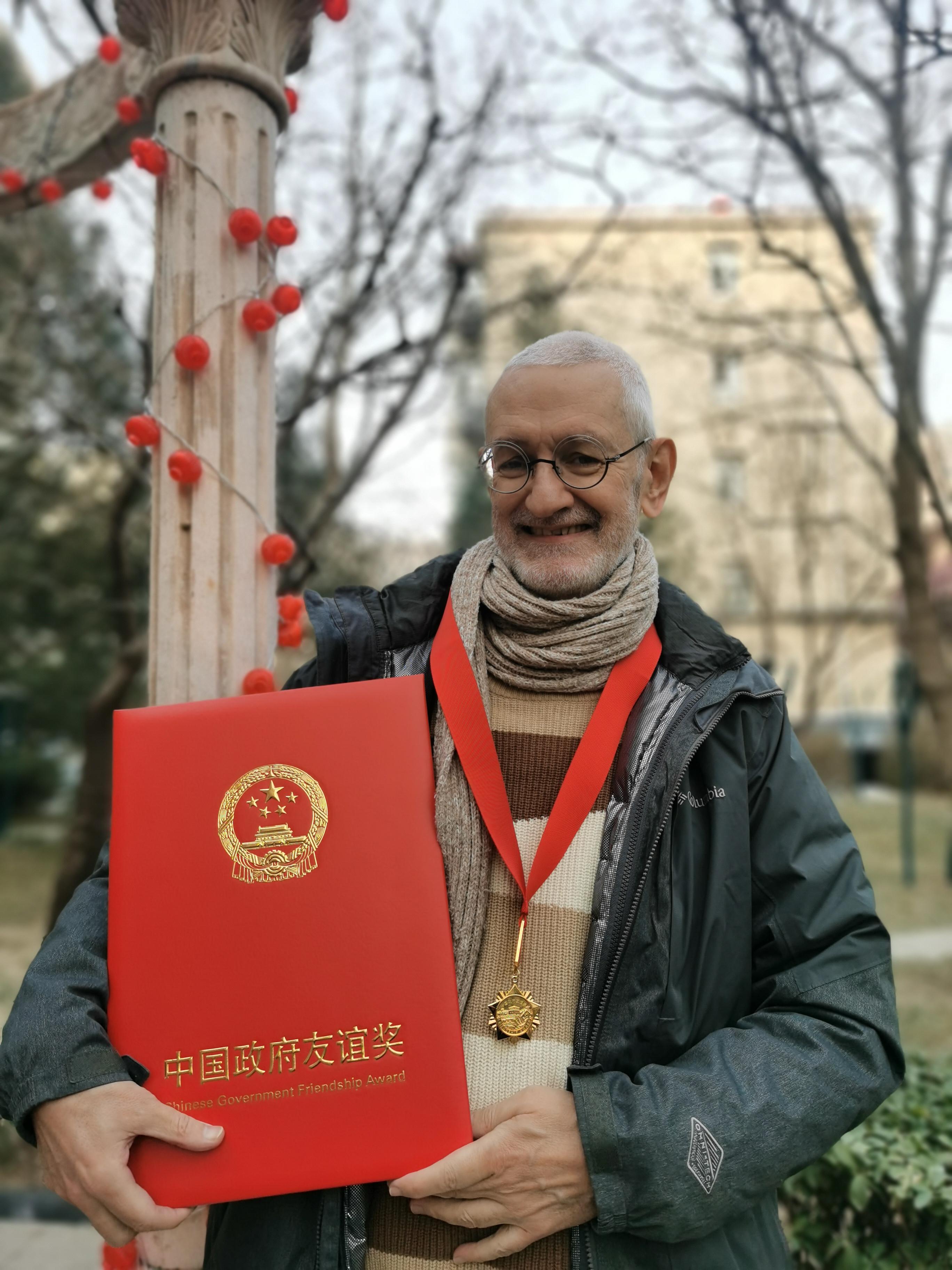The Art of Translation: Getting Message Across
We first met Spanish language expert Francisco Javier Ayllón Piquero at a forum that was themed on understanding China better. His speech revealed a world where languages bridge different cultures, bring vivid perspectives and foster understanding.

"Language is like a vast ocean," Ayllón told Science and Technology Daily adding that it is filled with treasures to be discovered.
In 2001, he moved to China, a decision that would forever change his life's path. Initially, he taught Spanish at a foreign language school in Shandong province. His talent for teaching language quickly attracted attention and led him to work at China Central Television (CCTV) as a Spanish translator and editor. It wasn't long before another opportunity arose and he was introduced to the Central Compilation and Translation Bureau (now the Institute of Party History and Literature of the CPC Central Committee), where he has been a Spanish editing specialist for nearly two decades.
The nuances of language
For over 20 years, Ayllón has enhanced his skills in translation, particularly in the field of political documents. "The most rewarding part of this work is that it is never static. I get to keep learning Spanish [words for difficult political jargon] every day even though it's my native language," he said. Moreover, "Age is not a limiting factor in my field, and I want to continue as long as possible. The beauty of language work transcends time."
"My work is not just about converting one language to another," Ayllón said. According to the Spanish expert, translating China's political documents isn't a simple linguistic task and it involves understanding the cultural, historical, and political nuances behind the words.
One of Ayllón's unforgettable moments in his career came during the translation of a critical document — The Report to the 20th CPC National Congress. The text included six major principles, known as the "six commitments," which serve as a cornerstone of China's development path. Translating phrases like "uphold fundamental principles and break new ground" required collaboration with Chinese colleagues and hours of discussions.
Ayllón described the process as both challenging and rewarding. "We debated for a long time about how to translate the term fundamental principles in the context of this report. In Chinese, the phrase 'fundamental principles' carries a range of meanings, from 'correct direction' to 'moral principles.' After consulting with the drafting team, we decided that this phrase in this context referred to the core values that must be upheld."
His work doesn't end with just choosing the right words and putting them on paper. "Chinese political language is subtle and deeply rooted in its historical and cultural context," Ayllón explained. Many times, a single Chinese character can carry multi-layered meanings. And some often don't have direct equivalents in other languages, which makes literal translation insufficient.
"This makes collaboration between Chinese and foreign translators vital," he said, adding that they need to ensure that the meaning, context, and intention behind these terms are accurately conveyed to a global audience without losing their essence.
Understanding China better
Ayllón believes his role is not just about accuracy but about promoting mutual understanding. For years, Ayllón has witnessed China's evolving relationship with the world. Foreign experts like him play a pivotal role in helping the international community understand China's political messages, policies, and values.
One experience that left a deep impression on Ayllón was his visit to Xinjiang Uygur autonomous region. He recalled being struck by the unexpected similarities between Kashi, a historic city in Xinjiang, and Guangdong, a province in the south. "Despite the vast distance between the two regions, I saw many successful commercial and industrial projects from Guangdong thriving in Kashi," he said.
This visit also gave Ayllón insight into China's unique concept of "paired assistance," where more developed regions provide financial, technological, and human resource support to less developed areas, like Xinjiang. "This initiative deepened my understanding of China's approach to modernization," Ayllón said. "It's about ensuring prosperity for all people, which is a key part of Chinese modernization."
His travels and studies in China have deepened his respect for the country's rich history and diverse culture. "From the grasslands in the north to the mountains and rivers in the south, China is a country of vast natural beauty. But it's the warmth and kindness of the people I've met that have made the biggest impact on me," he said.
A decision he never regrets
Looking back at his time in China, Ayllón highlighted his friendships with his Chinese colleagues. "We don't just work together; we are like family," he said.
He said that Shen Baolou, a highly respected Spanish translator, left a lasting mark on him: "Shen passed away two years ago, but I still think of him often. He was meticulous, dedicated, and always ready to debate the smallest nuances in a translation. He was also humble despite his impressive accomplishments. I learned so much from him, and his passion for translation inspires me."
For years, Ayllón has been drawn to the elderberry tree in the courtyard of his workplace. "This tree has been here since the day I first arrived in 2004," he recalled, adding that it's grown and flourished, just like his life in China. "Seeing it reminds me that, although time flies, some things, like the relationships we build and the work we love, endure forever."







